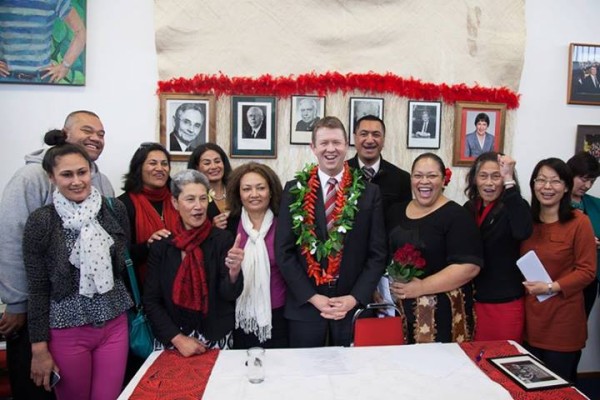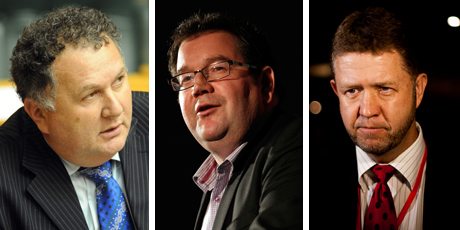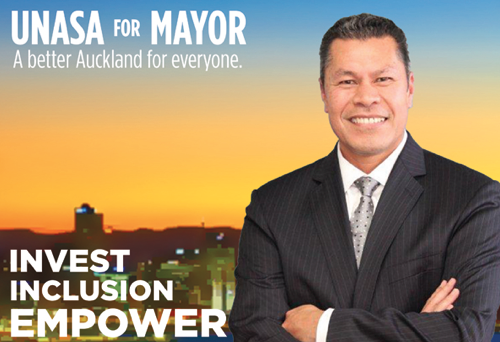Some months ago I was asked by a good friend and colleague at the Salvation Army to be on a commentary panel on the day they released a report on the state of Pacific people in NZ aptly titled More than churches, festivals and rugby. The report is the first of its kind and I congratulate the Social Policy Unit of Salvation Army for showing the leadership and courage to produce it. I rocked up to the launch in Otahuhu thinking it would be a small, intimate affair only to realize I should have dressed better because the place was packed out. Numerous MP’s, community leaders, youth workers, the media and parents were there to get a copy of this excellent document and hear people outline the reasons for the report and preliminary feedback. Our panel of three people spoke, rarked up the audience a bit then retired to our seats.
At the conclusion of the meeting all the political parties attending the launch were invited to nominate someone to speak on their behalf. We heard the usual commitment from all of them to listen to the voices of the community and do their best to engage with us. Forgive me for sounding slightly cynical. NZ First, National, Labour and the Greens all got a chance to speak. That morning though, I heard a comment that absolutely floored me made by the Greens Pacific spokesperson. I’ll be upfront… I like the Greens. They approach conversations with sensitivity and intelligence which is to be commended. But the comment that rocked me was when the Green MP stood up and said that she wasn’t Pacific “but let’s just pretend I’m a Pacific Islander”. Some of us gasped when she made that comment: ‘awkward’ someone in front of me turned and said. Awkward it definitely was. I’ve reflected for a while on the comment this MP made and am still shocked by the fact she made it. Being the pretty laid-back person I am, I think at the time I gave her the benefit of the doubt in making such an awful remark. Perhaps she made this ‘throw-away’ comment to disguise her nerves in an auditorium full of Pacific people. I don’t know.
What I do know is that over the years there have been many forms of people wanting us to look at them and “pretend that they’re Pacific”. MP’s show up to church at precisely the 3-year election cycle. University researchers come into our communities and schools saying they’ll gather the necessary Pacific data to affect change in social policy. Private Training Establishments have set up everywhere promising employment at the completion of a free, certificate-level course. The mainstream media chase our kids for a story promising national fame. Well, the MP’s get elected; the researchers become professors; the PTE’s get rich and the media get ratings. But what of our people? What of our deeply personal stories? Time and again our narratives are produced for mass, mainstream consumption and like foreign-owned companies’ profits, the knowledge and intellectual property go off-shore.
So for the record Jan, pretending hurts: it steals, it lies and it destroys. Pretending has been the means with which people, universities, political parties and numerous other wolves have come into our homes, schools and churches to get what they want. A story, a vote, a signature. More often than not, the contact we’ve had with pretenders has benefitted us nothing. The report on the state of Pacific people released that morning was co-authored by a young Samoan, Tokelauan man who has lived in Mangere, south Auckland all his life. For the first time in forever, one of our people got to tell the story. And whilst the critics have said that the report only tells us the things we already know, the point is ‘we’ got to tell our story. It’s not pretend for those of us who live this reality, who go to church every Sunday with this reality, who shop at the shopping centres of this reality and who support our youth through this reality. Read the report and you’ll see that there’s nothing pretentious about the realities it describes for Pacific people in Aotearoa.




